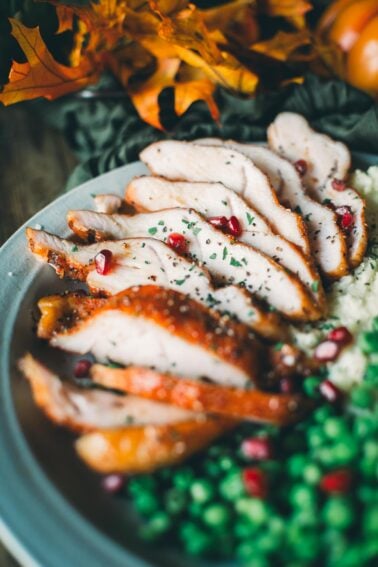A good meatball should be tender, flavorful, and bursting with juice the moment you cut into it. Yet all too often, they come out dry, dense, and underwhelming – a far cry from the comforting classic they’re meant to be. The difference isn’t luck; it’s knowing how to treat the meat, how much to handle it, and how to cook it without losing moisture along the way. With a few adjustments, even the most stubbornly dry meatballs can turn into the kind that disappear from the plate before the pasta’s gone.
Want to see these techniques in action? Check out our 10 meatball recipes that any Nonna would approve – each one uses these moisture-retention secrets.
Selection of Meat

One of the primary factors that contributes to the juiciness of your meatballs is the meat itself. The fat content in the meat plays a pivotal role. More fat translates to more juice and flavor. Lean meats might seem healthier but when it comes to meatballs, they can result in a drier outcome. A good ratio to aim for would be 80% meat and 20% fat. This balance ensures that your meatballs remain moist without being overly greasy.
|The type of meat used also impacts the outcome. Beef, with its robust flavor, is a popular choice but mixing it with pork or veal can add an extra dimension to the taste. Turkey, being leaner, might require some additional ingredients to enhance juiciness. The quality of the meat is also vital. Opt for fresh, high-quality meat for the best results. Remember, the better the quality of your ingredients, the better your final dish will be.
Preparation Techniques

How you prepare your meatballs also has a significant impact on their juiciness. Overmixing the meat mixture can lead to tough, dense meatballs. You want to mix the ingredients just until combined to maintain the texture. Breadcrumbs soaked in milk, referred to as a panade, are a secret weapon in the quest for juicy meatballs. They add moisture and prevent the meat from shrinking during the cooking process.
Eggs serve as a binding agent in the meatball mixture, contributing to the texture. However, too many eggs can make the meatballs rubbery instead of tender. Stick to one egg per pound of meat as a general rule. Remember, the optimal texture is just as crucial as juiciness for a pleasurable dining experience.
Cooking Methods

Different cooking methods yield different results. Baking meatballs in the oven is a healthier option, but they may end up slightly drier than their pan-fried counterparts. Frying meatballs provides a rich, brown crust and seals in the juices. You can also simmer meatballs directly in sauce. This method not only infuses them with flavor but also keeps them moist. However, it’s important not to overcook them, as this will dry them out regardless of the method used.
Temperature control is vital in cooking meatballs. A too-high heat can cause the outside to burn before the inside is cooked. On the other hand, a too-low heat might leave the meatballs undercooked. A medium heat ensures even cooking. Searing meatballs before simmering them in the sauce can also help retain juices and add a depth of flavor.
Put These Tips to Work:
- Ground Meat Temperature Guide – Safety first
- Easy Pork Meatballs – Perfect for beginners
- French Onion Meatballs – Advanced technique
- Meatball Stroganoff – Complete meal idea
Common Mistakes and How to Avoid Them

There are some common mistakes that can stand in the way of juicy meatballs. One such mistake is cooking meatballs straight from the refrigerator. This can lead to uneven cooking, with the center remaining raw while the outside burns. Allow the meatballs to come to room temperature before cooking them.
Not resting meatballs before cooking is another common blunder. Resting allows the flavors to meld and the meat to absorb the seasonings, resulting in tastier meatballs. Also, keep in mind that the size of the meatballs matters. Smaller meatballs cook faster and are less likely to dry out than larger ones. However, they should be uniform in size for even cooking.
Additional Tips for Juicy Meatballs

There are other tricks to boost the juiciness and flavor of your meatballs. Incorporating vegetables like grated onion or zucchini can add moisture. Plus, they provide a nutritional boost. Cheese, such as Parmesan or mozzarella, can also add moisture and impart a rich, savory flavor.
Never underestimate the power of seasoning and marinating. They can enhance the flavor profile and make your meatballs juicier. Whether it’s a simple mix of salt and pepper or a more exotic blend of spices, seasoning your meat will make a world of difference. Similarly, allowing the meat to marinate in the seasonings for a few hours will deepen the flavors and result in juicier meatballs.
Ready to put these tips to work? Try your hand at our Perfect Pork Meatballs or go bold with Smoked Italian Meatballs. For more meat mastery techniques, browse our complete How-To Guides collection.
Hungry for more? Subscribe to our newsletter and become part of the world’s best meat community! From grilling tips to smoky secrets, we send you the best recipes, guides, and expert advice to master every cut.













